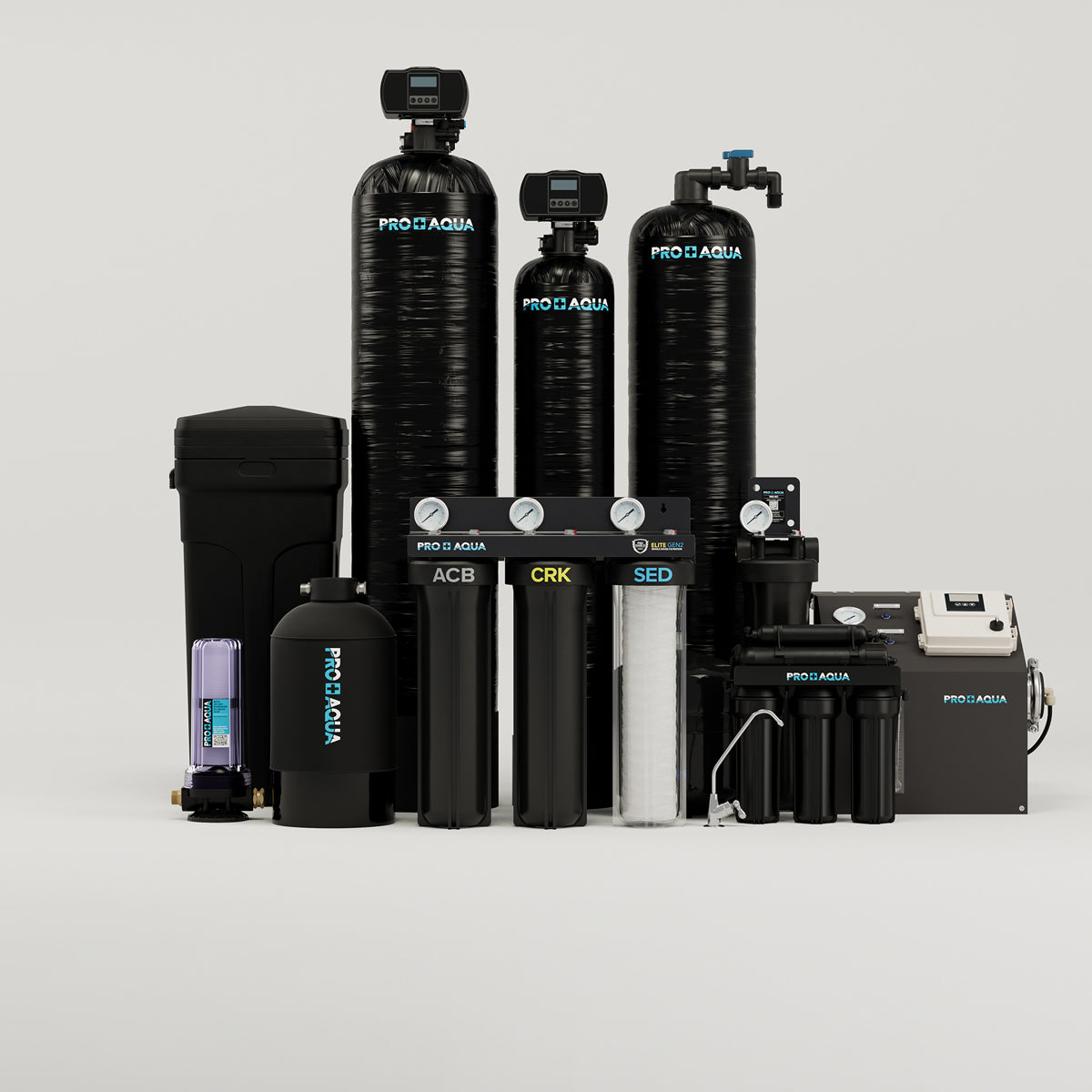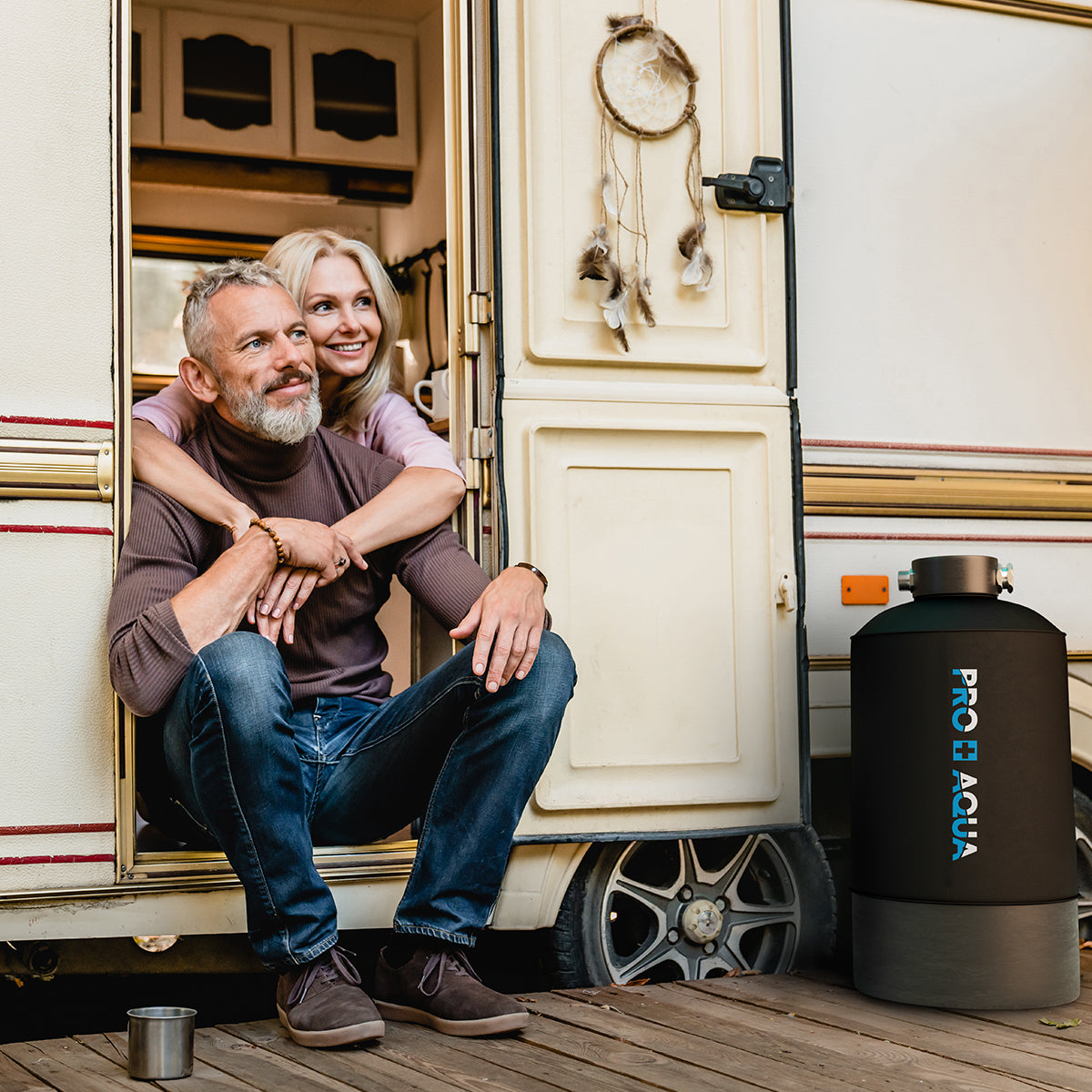If you've just moved into a new home and noticed spots on your dishes, stiff laundry, or dry skin after showers, you may be dealing with hard water. Many homeowners turn to water softeners to fix these issues, but there's a growing trend toward salt-free water softener systems.
Whether you're environmentally conscious or just looking for a low-maintenance solution, salt-free systems are becoming a popular choice. This guide breaks down what they are, why they're becoming popular, and how to decide if one is right for your home.
What Is a Salt-Free Water Softener System?
Despite the name, salt-free water softeners don’t actually "soften" water. Instead, they change the structure of hardness minerals so they don’t stick to pipes or surfaces.
Traditional softeners use ion exchange to remove hard minerals, offering similar end-results for homeowners. The difference ultimately lies in the process.
The salt-free process (template-assisted crystallization or TAC) prevents scale buildup without altering the water’s mineral content. Your water will still contain minerals, but they won’t damage your plumbing or appliances.
Why Are Salt-Free Systems Gaining Popularity?
Several factors are driving the rise of salt-free softeners, especially among new homeowners:
Environmental Awareness
Salt-free systems don’t discharge brine into the environment, making them more eco-friendly—especially in states like California or Arizona where salt-based softeners are restricted or even banned in some municipalities.
Low Maintenance
No hauling heavy bags of salt. No electrical components. No messy drainage. Just install it and let it work in the background. This is ideal for first-time homeowners juggling home projects.
Health-Conscious Choices
Some homeowners prefer to avoid added sodium in their water, especially for those with health conditions or on low-sodium diets. Salt-free systems keep the natural mineral content without altering taste or health profile.
Smart Home Compatibility
Many salt-free systems are now designed with compact, space-saving builds, and even smart monitors that make them ideal for modern households focused on convenience and automation.
Pros and Cons of Salt-Free Water Softeners
Pros:
- Environmentally friendly—no salt or discharge
- No electricity or programming required
- Maintenance-free operation (no refills)
- Prevents scale buildup on pipes and fixtures
- More compact and often easier to install
Cons:
- Doesn’t remove hard minerals, conditions them instead
- May be less effective in extremely hard water areas
- Not ideal for homes with very high iron or sediment levels
Salt-Free vs. Salt-Based Systems: A Side-by-Side Comparison
|
Feature |
Salt-Free System |
Salt-Based System |
|
Removes hardness |
No (conditions only) |
Yes |
|
Maintenance |
Low |
Medium (salt refills) |
|
Environmental impact |
Minimal |
Higher (brine discharge) |
|
Initial cost |
Medium to high |
Often lower |
|
Best for |
City water, low hardness |
High-hardness, well water |
Is a Salt-Free Softener Right for Your Home?
Here are a few questions to ask before choosing a salt-free system:
What’s your water source?
Salt-free systems work best with city or municipal water. Well water, especially with high iron or sediment, may require pre-filtration or a salt-based softener.
How hard is your water?
You can easily test this with a DIY water test kit. Salt-free systems are generally most effective in homes with moderate hardness levels.
Are you short on space or looking for low upkeep?
These systems are perfect for smaller homes, apartments, or homeowners who prefer “set-it-and-forget-it” solutions.
FAQs
Q: Do salt-free softeners actually work?
Yes—but they condition rather than soften water. They prevent scale buildup, but don’t remove calcium or magnesium.
Q: Can I use a salt-free system on well water?
Not ideal unless paired with pre-treatment for sediment and iron. Salt-free systems work best with city water.
Q: How long does a salt-free system last?
Most systems last 6–10 years, depending on brand, water quality, and usage.
The Future of Water Softening
The rise of salt-free systems is part of a broader shift toward smarter, greener home living. While they may not be a perfect fit for every household, they offer new homeowners a low-maintenance solution for reducing scale and protecting their investment.
Still unsure? Start by testing your water, then consult a local professional or trusted retailer. The right water system makes a big difference for your comfort and long-term peace of mind.
Discover more about PRO+AQUA Salt-Free Systems.








Leave a comment
This site is protected by hCaptcha and the hCaptcha Privacy Policy and Terms of Service apply.